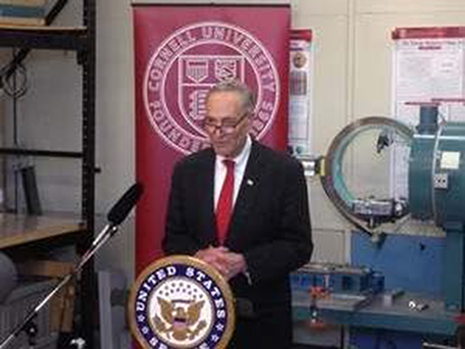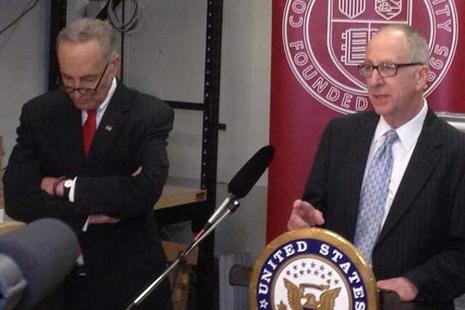The money will ensure the lab operations continue for the next five years.
U.S. Sen. Charles Schumer, D-NY, announced that the NSF grant had been renewed Monday while visiting the Wilson Lab in the CHESS facility, which is one of five high-energy synchrotron x-ray sources in the world and one of only two in the United States. It provides synchrotron x-ray capabilities to investigators in all fields of science and engineering.
“What does (the funding) mean? It means CHESS is on firm financial ground,” Schumer said. “The people that work here can plan their research, not just for a year but for the next five to 10 years, without a sudden cut or drop in support. It means the federal government believes that Cornell and the CHESS lab in particular are worthy of substantial investment. And it means that the work done here is a national priority.”

Schumer said the grant will ensure the lab’s continued work on projects, including collaboration with the Air Force Research Laboratory to develop new tools to ensure that military and commercial planes stand up to stress and fatigue. CHESS researchers are also partnering with the Department of Energy and Cornell’s Energy Materials Center to develop longer-lasting lithium ion batteries and hydrogen fuel cells that could help solve global warming by eliminating the need for gasoline, Schumer said.
CHESS x-ray stations are also used by pharmaceutical companies and the National Institutes of Health to develop new drugs.
“How could anyone want to stop this for a relatively small amount of money?” Schumer asked. “I mean, $100 million is a lot of money but not in federal budget terms.”
CHESS’s last grant from the NSF, totaling $109 million, came in 2010. About $77 million of that money was slated to continue operations of the facility for at least the next four years, but in 2012 the NSF considered cutting the funding until Schumer and others intervened.
